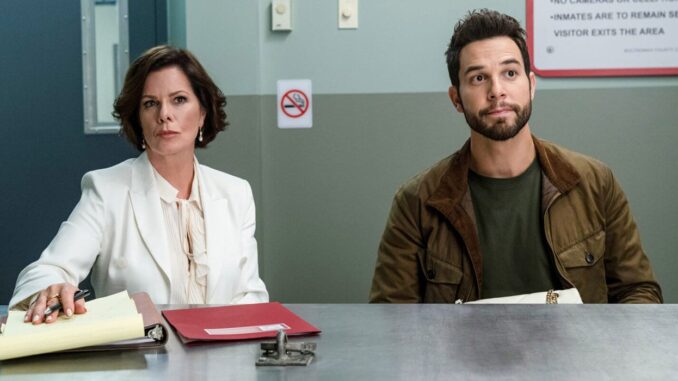
The Ghost of Pilot Season Past: Why Todd Couldn't Be Saved
The email sat in my inbox, a crisp, brutal obituary disguised as industry pleasantries. "Regretfully," it began, the word hanging in the air like the scent of disinfectant. "So Help Me Todd has been cancelled." Just like that, the quirky legal dramedy that I, along with a dedicated team of writers, actors, and crew, poured our hearts and souls into, was deemed no longer viable. The cancellation stung, of course, but it also sparked a relentless, internal autopsy. What went wrong? Where did the magic, the promise, fizzle out?
The official line, whispered through the Hollywood grapevine and occasionally uttered by nervous network executives, pointed to the usual suspects: declining ratings, budget constraints, the ever-shifting landscape of network television. These are all valid considerations, the logistical boogeymen that haunt every showrunner’s dreams. But beneath the surface, a more complex, perhaps more painful, narrative emerged – a story of creative compromises, shifting network priorities, and the fundamental challenge of balancing a compelling premise with long-term viability.
The initial spark of So Help Me Todd was undeniable. It was a lightning bolt of familial dysfunction laced with sharp wit and a procedural backbone. A by-the-book lawyer, Margaret Wright, reluctantly hires her wildly unconventional, conspiracy-theorist son, Todd, as her firm’s in-house investigator. The inherent tension between their opposing personalities, their shared history, and their undeniable love for each other formed the crux of the show. We envisioned a blend of "Moonlighting" charm and "House" deduction, a legal drama infused with a healthy dose of quirky family dynamics.
However, the inherent risk in such a concept lies in its delicate balance. We were constantly walking a tightrope between the procedural elements, which the network deemed necessary to attract a broad audience, and the character-driven stories, which were the show's true heart. Early on, we received notes pushing us towards more straightforward cases, more easily digestible plots. We acquiesced, believing that a broader appeal would secure longevity. But each concession, each dilution of the core dynamic, chipped away at the show's unique identity. Todd's eccentricities, once a source of comedic brilliance and unexpected insights, were gradually sanded down, making him less of a lovable rogue and more of a quirky sidekick.
The network, in its relentless pursuit of the elusive demographic, also pushed for a more “aspirational” portrayal of Margaret. They wanted her to be less flawed, less driven by ambition, and more of a beacon of moral rectitude. While understandable in theory, this shift robbed her of her complexity, the very thing that made her a compelling foil to Todd's chaotic energy. Her moral ambiguity, her willingness to bend the rules, created a friction that fueled the narrative. By smoothing her edges, we inadvertently dulled the entire story.
Another critical factor, and one that’s rarely discussed openly, was the arrival of a new network executive midway through the second season. This individual, armed with a fresh vision and a mandate to shake things up, subtly shifted the direction of the show. The emphasis on "serialized" storytelling increased, demanding that we introduce more overarching narratives and cliffhangers. This, in itself, wasn’t inherently problematic. However, it often felt forced, diverting attention away from the smaller, more intimate character moments that resonated most deeply with our core audience. We spent more time chasing red herrings and less time exploring the complex relationship between Margaret and Todd.
Ultimately, the cancellation of So Help Me Todd wasn't a singular failure, but rather a death by a thousand cuts. It was a gradual erosion of the show's unique DNA, a series of well-intentioned but ultimately detrimental compromises driven by the pressures of network television. We sacrificed authenticity for accessibility, complexity for clarity, and ultimately, the soul of the show for the illusion of broad appeal.
Looking back, I regret not fighting harder for the original vision, for the messy, flawed, and ultimately human characters that drew us to the project in the first place. The ghost of pilot season past still haunts me, a reminder that sometimes, the most challenging, most rewarding creations are the ones that dare to be different, the ones that resist the urge to conform. Perhaps, in the end, So Help Me Todd was simply too quirky, too unconventional, for the increasingly homogenized world of network television. But I'll always cherish the memories of the show that dared to be a little bit different, the show that, for a brief, shining moment, captured the hearts of those who loved its offbeat charm. And maybe, just maybe, that's enough.
